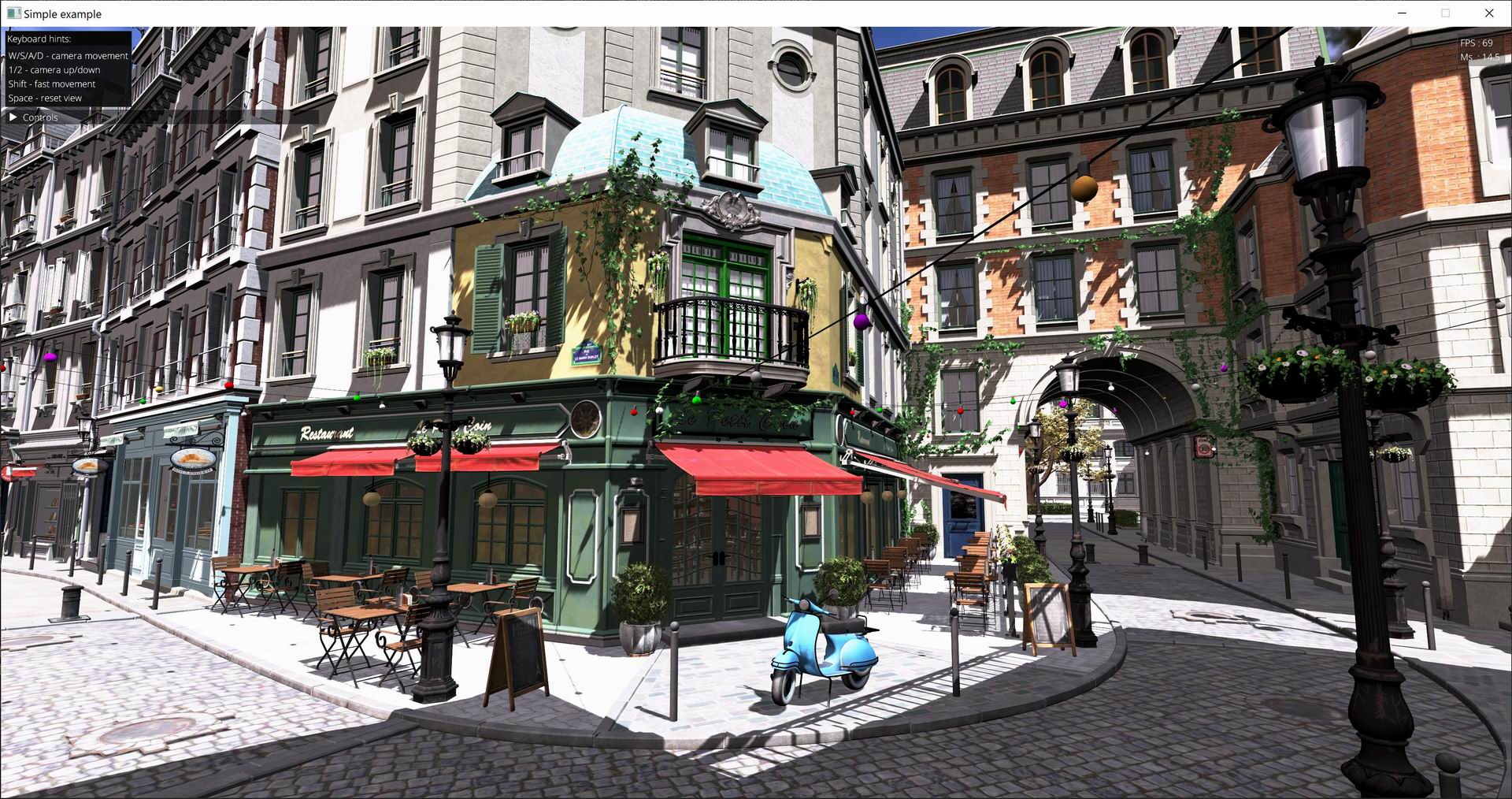LightweightVK is a deeply refactored fork of IGL which is designed to run on top of Vulkan 1.3.
The main goals of LightweightVK:
- Lean. Minimalistic API without bloat (no
std::vector,std::unordered_mapetc in the API). - Bindless. Utilize Vulkan 1.3+ dynamic rendering, descriptor indexing, and buffer device address features for modern bindless-only API design.
- Agile. A playground for experiments to enable quick exploration of ideas and adoption of Vulkan API changes. Designed for rapid prototyping of Vulkan-based renderers.
There are no plans to keep this fork in sync with the upstream.
- Vulkan 1.3 (Windows, Linux, Android)
- Vulkan 1.2 + extensions (MacOS)
- Linux
- Windows
- MacOS (via MoltenVK)
- Android
| Windows | Linux | MacOS | Android | |
|---|---|---|---|---|
| Vulkan 1.3 | ✔️ | ✔️ | ❗ | ✔️ |
| Vulkan 1.2 | ✔️ |
On MacOS, features required by LightweightVK are available via extensions VK_KHR_dynamic_rendering, VK_EXT_subgroup_size_control,
VK_EXT_extended_dynamic_state, VK_EXT_extended_dynamic_state2, and VK_KHR_synchronization2.
❗ VK_KHR_maintenance4 is not yet supported in MoltenVK ❗
Check the status of Vulkan 1.3 support in MoltenVK.
Before building, run the deployment scripts:
python3 deploy_content.py
python3 deploy_deps.py
These scripts download external third-party dependencies. Please check LICENSE.md for the full list.
cd build
cmake .. -G "Visual Studio 17 2022"
sudo apt-get install clang xorg-dev libxinerama-dev libxcursor-dev libgles2-mesa-dev libegl1-mesa-dev libglfw3-dev libglew-dev libstdc++-12-dev extra-cmake-modules libxkbcommon-x11-dev wayland-protocols
cd build
cmake .. -G "Unix Makefiles"
❗ Use cmake .. -G "Unix Makefiles" -DLVK_WITH_WAYLAND=ON to build for Wayland, X11 is used by default.
❗ Be sure that VulkanSDK 1.3.275.0 for MacOS is installed https://vulkan.lunarg.com/sdk/home#mac
cd build
cmake .. -G "Xcode"
❗ Be sure that Android Studio is set up.
❗ Be sure that the ANDROID_NDK environment variable points to your Android NDK.
❗ Be sure that the JAVA_HOME environment variable is set to the path of the Java Runtime.
❗ Be sure that the adb platform tool is in the PATH environment variable.
cd build
cmake .. -DLVK_WITH_SAMPLES_ANDROID=ON
cd android/Tiny # or any other sample
./gradlew assembleDebug # or assembleRelease
You can also open the project in Android Studio and build it from there.
Before running demo apps on your device, connect the device to a desktop machine and run the deployment script:
python3 deploy_content_android.py
NOTE: To run demos on an Android device, it should support Vulkan 1.3. Please check https://vulkan.gpuinfo.org/listdevices.php?platform=android
NOTE: At the moment, no touch input is supported on Android.
Check out https://github.com/corporateshark/lightweightvk/samples.
LightweightVK is released under the MIT license, see LICENSE.md for the full text as well as third-party library acknowledgements.
